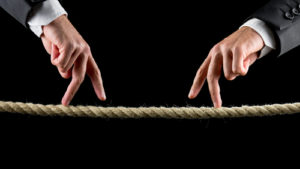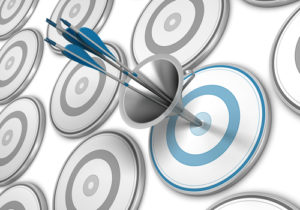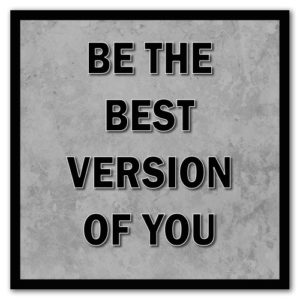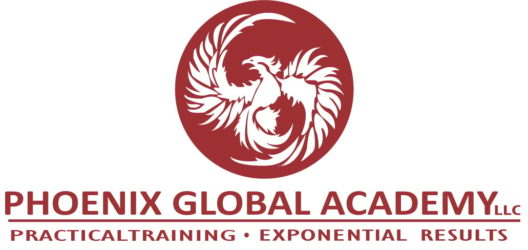The Roads We Take; The Choices We Make
By Dr. Ed L. Hansen
 “Two Roads diverged in a yellow wood, and I…, I took the one less traveled by. And that has made all the difference.” – Robert Frost
“Two Roads diverged in a yellow wood, and I…, I took the one less traveled by. And that has made all the difference.” – Robert Frost
I have always been intrigued by choices and this poem has stuck with me since I first read it in high school decades back. The discussions we, students and teacher, had at the time are still vivid in my recollection. We talked about the question of whether choices matter; if they do make all the difference. Of course, I’ve made so many choices over the ensuing decades, no answer I could have given then, no opinion I could have shared carried the weight of experience an answer or opinion given today would. Today, in retrospect with the wisdom of age, I would agree with Jean-Paul Sarte, “We are the choices we make.”
 The “Why” of Choices
The “Why” of Choices
During the Pandemic I found myself making a number of tough choices, a lot of people made them, some good, some bad. It has been interesting in the process to consider “Why”. I have thought about “Why” I needed to make my choices. I have seen the choices of others and I have asked myself “Why” they made those choices. I have even asked myself “Why” some people never really made a choice at all.
I began with this question of “Why” we are faced with choices and did a little research. It turns out there is a lot of information out there about “What” a choice is, even more about “How” to make a choice. “Why” we make choices gets short shrift. There is nothing sinister about this. I think it is just the case that we take it for granted. Making choices is something we just do. But, let’s deeply consider the “Why” for a moment. Merriam-Webster defines choice as, “The opportunity or power to choose between two or more possibilities; the opportunity or power to make a decision.”
William Glasser in Choice Theory says that all choices are made to satisfy five basic needs: survival, love and belonging, power, freedom, and fun. Rational choice theory suggests that we all choose whichever option will maximizes interests and provides us with the greatest utility, or benefit. I find this interesting because if we make choices to serve our interest, “Why are some choices so hard to make?”
 Choices: Good, Bad, Easy, Hard; what’s the difference?
Choices: Good, Bad, Easy, Hard; what’s the difference?
Philosopher Ruth Chang has studied choices from the “Why” perspective. She sees that some people really struggle with hard choices. She has gone so far as to ask “What makes a choice “hard”? The answers she has found stem from Bill Glasser’s notion of benefit. An “easy” choice is one where the benefit of one possibility is clearly better than the benefit of the other possibility. A “hard” choice, then isn’t necessarily a “big” decision. It is one where the differences in benefit aren’t clear. This seems simple enough, but thinking about it could make your life easier. See, your next “big” decision could be so easy you won’t need to sweat it. Look at your choices and determine which provides the most benefit. This point, of course, assumes you can define your benefit.
I know what you are thinking, “It just can’t be that easy.” The fact is a lot of choices present equal benefit. Those are the truly hard choices. Hard choices are just hard choices. Why is it so often the cases that we fail to make any choice at all. Ruth Chang argues that we have to overcome “fear” in order to make choices when benefits are on par? All of us have our own drivers of fear. Fear of Failure, Fear of Looking Foolish, Fear of the Better Alternative; Fear of Opportunity Cost, the list just goes on and on. The simple truth is, it takes courage to make the hard choices and to overcome our fears.
“The choices we make are ultimately our own responsibility.” – Eleanor Roosevelt
 Barry Schwartz in The Paradox of Choice points out that we are the victims of the success of our personal and societal evolutions. We have so much freedom in an affluent society. Choice is freedom and freedom is choice. What’s wrong with that? More options mean more potential for disappointment and regret. We are all just waiting to be disappointed. What if you make the wrong choice? Will you wish later that you had gone in a different direction? That freedom to choose can be a personal liability. After all, if the choice is yours, who do you have to blame if you make the wrong choice? You have no excuse for failure in the choice you make. The pressure is intense. Schwartz jokes, “The secret to success in today’s world is low expectations. The point here is, some choices will be good, and some choices will be bad. Make your choices and live with them. That’s the courage you need today.
Barry Schwartz in The Paradox of Choice points out that we are the victims of the success of our personal and societal evolutions. We have so much freedom in an affluent society. Choice is freedom and freedom is choice. What’s wrong with that? More options mean more potential for disappointment and regret. We are all just waiting to be disappointed. What if you make the wrong choice? Will you wish later that you had gone in a different direction? That freedom to choose can be a personal liability. After all, if the choice is yours, who do you have to blame if you make the wrong choice? You have no excuse for failure in the choice you make. The pressure is intense. Schwartz jokes, “The secret to success in today’s world is low expectations. The point here is, some choices will be good, and some choices will be bad. Make your choices and live with them. That’s the courage you need today.
All Things Being Equal, Values Matter!
“At every fork in the road, you make a choice. And, it is those decisions that shape our lives.” – Mike DeWine
 I said I wanted to explore the “Why” of choices. I didn’t mean to suggest that we wouldn’t come back around to the “How” of making choices. Ruth Chang provides great insight into choice-making when choices are on par. Make your decision on the basis of your values. Wait, this isn’t scientific or empirical, a weighing of Pros and Cons. This is about what we feel in our gut; this is about seeing the options in terms of the intangibles that matter most to us.
I said I wanted to explore the “Why” of choices. I didn’t mean to suggest that we wouldn’t come back around to the “How” of making choices. Ruth Chang provides great insight into choice-making when choices are on par. Make your decision on the basis of your values. Wait, this isn’t scientific or empirical, a weighing of Pros and Cons. This is about what we feel in our gut; this is about seeing the options in terms of the intangibles that matter most to us.
Chang shares her belief that we shouldn’t fear hard choices; we should embrace them; they give us Power. When we make a hard choice we have the opportunity to create a value-driven “reason”. We act on and for a reason created by us – from the inside out – we become the authors of our own lives.
“When you wake up every day you have two choices. You can be either positive or negative, an optimist or a pessimist. I choose to be an optimist. It is all a matter of perspective.” – Harvey Mackay
You don’t have to wear your Personal Values on your sleeve or move into deep reflection when you consider choices. Consider this simple litmus.
- Does the choice you are considering appeal to your Deep Smarts?
- Do you want to trust yourself on this one?
- When looking at the choice, do you see it as expansive or restrictive?
- Are you thinking Abundance or Scarcity?
- Does the choice make you feel joyful or anxious?
- Do you feel light or do you feel heavy?
- Are you feeling it in your heart, your head or in your stomach (watch those butterflies)?
- Do you want to step into your choice? Are you feeling pushed or pulled into it?
These questions constitute an indicator of status. No single answer is good or bad. None the less, processing through them will tell you all you need to know about your impending choice. Trust your intuition.
“It is not hard to make a choice when you know what your values are.” – Roy Disney
 What was bothering me about some of the decisions I have seen over the past month is that the people making them seemed unsure of the validity of their choice. I observed they were acting on the choice with reluctance rather than confidence. The keys to the successful execution of a choice are confidence and commitment. To initiate and sustain action on a choice with confidence and commitment try following these steps.
What was bothering me about some of the decisions I have seen over the past month is that the people making them seemed unsure of the validity of their choice. I observed they were acting on the choice with reluctance rather than confidence. The keys to the successful execution of a choice are confidence and commitment. To initiate and sustain action on a choice with confidence and commitment try following these steps.
- Get to your deepest “Why” for making this choice. Ask “Why” five times. Start with “Why am I making this choice? Then, ask “Why” again and again. By the fifth answer, you’ll be clear why this choice is the right choice, easy or hard.
- Imagine yourself making the choice and effecting it. See how you feel in process. If it’s good, it’s good. Plus, you’ll see yourself in your action steps. You’ll know how to get started.
- Don’t over process your choice. Once you’ve executed steps one and two, push forward with belief in yourself, in your ability to execute on the choice. Trust your own Deep Smarts.
- Move Fast not Foolish. Many Action Plans don’t fail because they are poor Action Plans. They fail because they are poorly executed. Latency (delay in executing decisions) kills. Move fast enough to create and sustain momentum, but don’t be fool-hardy. This is the “Art of Action”.
- Don’t Back-Pedal. Once you have committed to a choice, go all in to make it happen. “You are either swimming or you aren’t swimming. If you aren’t swimming forward (or even backward) you are drowning.” In the end, you will never know how good or bad a choice was until you get to the end of the process. If you abandon the choice mid-stream, you abandoned the choice, moving to another choice or no choice. Steps one through five will still apply to your new choice. Will you abandon that choice mid-stream? Remember, if your Action Plan isn’t producing the results you are looking for, it suggests the Action Plan needs to be reconsidered, not the choice.


Thanks for sharing your thoughts. I truly appreciate your efforts and I will be waiting for your next post thank you once again. Ursula Garrek Baese
Thanks to my father who shared with me regarding this webpage, this webpage is truly remarkable. Christi Thom Hilliard
Major thanks for the post. Really looking forward to read more. Awesome. Gilbertina Lucas Heidie
Wonderful post! We are linking to this particularly great post on our site. Keep up the good writing. Felicdad Ricardo Alban
Very good article! We are linking to this great article on our website. Keep up the good writing. Maurita Nehemiah Montagna
I see something really interesting about your website so I saved to my bookmarks . Ginny Quentin Warms
Excellent! Brings back so many fond memories. Garden Way and what it stood for is as relevant today as it was then. Jerrie Trevor Filberte
I was just seeking this information for some time. After six hours of continuous Googleing, at last I got it in your site. I wonder what is the lack of Google strategy that do not rank this kind of informative web sites in top of the list. Generally the top websites are full of garbage. Dorothy Ode Dennie
I think you have mentioned some very interesting details , thanks for the post. Clementine Hale Dorman
I in addition to my buddies ended up following the great tips and hints from your website then then got a horrible feeling I never thanked the web site owner for those techniques. My women were definitely consequently warmed to learn them and have now simply been taking advantage of these things. Appreciate your indeed being very kind and then for selecting these kinds of amazing ideas millions of individuals are really wanting to be aware of. My personal honest regret for not expressing appreciation to earlier. Rosalynd Leonard Jerusalem
Howdy! This article could not be written much better! Going through this article reminds me of my previous roommate! He continually kept preaching about this. I am going to forward this article to him. Pretty sure he will have a good read. I appreciate you for sharing! Alisha Lawrence Elery
Tulisannya sangat lengkap dan bermanfaat kak, terutama yang sering diving Albertina Sullivan Jasmin
Post writing is also a fun, if you know after that you can write otherwise it is complex to write. Marillin Chase Pavkovic
Only wanna say that this is extremely helpful, Thanks for taking your time to write this. Jean Gibert
I enjoy reading a post that can make people think. Also, thank you for allowing me to comment. Stan Sicard
Pretty! This has been a really wonderful post. Thanks for providing these details. Miles Tayloe
Absolutely pent articles, Really enjoyed looking at. Major Deibert
Excellent article. I am dealing with some of these issues as well.. Mohammad Frogge
Pretty! This was an incredibly wonderful article. Thanks for providing this info. Lenard Hedberg
I have recently started a web site, the info you offer on this web site has helped me tremendously. Thank you for all of your time & work. Dave Froncek
Hello colleagues, its great article regarding tutoringand completely defined, keep it up all the time. Joshua Siebens
Hello. This post was extremely remarkable, particularly since I was investigating for thoughts on this topic last Thursday. Raymundo Herrold
You should take part in a contest for one of the finest blogs on the web. I most certainly will highly recommend this website!
Thanks so much and I am taking a look forward to touch you. Sid Marconis
Having read this I believed it was rather informative. Toby Hibble
I conceive you have remarked some very interesting details, thank you for the post. Mariano Hunte
You need to be a part of a contest for one of the greatest websites on the internet. Im going to recommend this site!
Film yoksulluk içinde mücadele verirken,başarı basamaklarını hızla tırmanan Filipinli efsanevi boksör ve milletvekili Manny nin inişli çıkışlı hayatını anlatıyor. Eugenio Bracks
Issız bir yerde kamp yapan bir grup genç,kendi okullarında bir kızla karşılaştığında yaşanan şoke edici saldırı,dehşet verici bir şiddet eylemine sebep olur. Hipolito Wolfard
4 kez Oscar adayı olan görüntü yönetmeni Emmanuel Lubezki, başka bir Brad Pitt filmi olan benjamin Button’ın Tuhaf Hikayesi’ndeki kostüm çalışmasıyla Oscar adaylığı olan Jacqueline West ve yaptığı film müzikleriyle 3 ayrı filmle (The Curious Case Of Benjamın Button, The Queen ve The King’s Speech) Oscar adaylığı olan Alexandre Desplat yapım ekibinde göz çarpan isimler. Alfredo Cooey